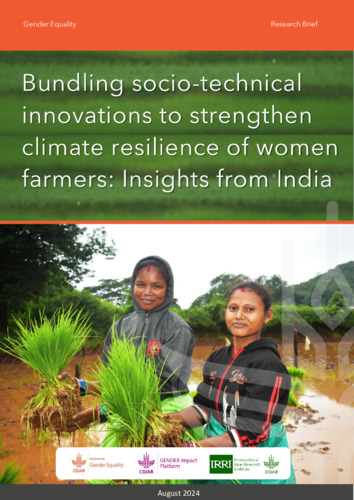Bundling socio-technical innovations to strengthen climate resilience of women farmers: Insights from India
Abstract
Women often lack access to and control over productive resources and services due to unfavorable gender and social norms. This renders them invisible in the traditional and/or formal extension systems, depriving them from participation in exploring and designing solutions for climate change and technology development. The opportunity for skill training, accessing information, and participation in the feedback loop are often plagued with inherent structural biases. Consequently, many technologies that are promoted as climate solutions are either not reachable or not usable by women. While there is a growing emphasis on the importance of engaging multiple stakeholders and bundling various technical and social innovations, evidence on methodologies for enabling such integrations are lacking. Drawing from different regions and livelihood systems of India, this paper synthesizes four case studies where the projects and programs have bundled social, technical, and technological innovations as intervention packages. The findings reveal that the interventions were designed to facilitate a shift in agricultural practices by mitigating the impacts of climate change, while also challenging gender norms and structural constraints, especially to improve women's economic conditions. However, the spontaneous and ad-hoc bundling also brought to light notable gaps and challenges. The study underscores the need for intentional bundling tailored on contextual requirements to ensure sustainable impact, empowerment, and resilience at scale.

